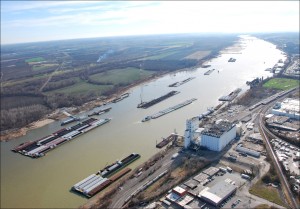President Trump this week kept a campaign promise, one especially important to the West, ordering the EPA to withdraw its controversial “Waters of the United States” (WOTUS) regulation. It is a welcome decision, though a great deal of work must be done now. That’s because Trump’s order temporarily reverts to the previous uncertainty, with constant disputes about which waters fall under the jurisdiction of the EPA.
EPA had finally resolved that uncertainty – by establishing absolute certainty that EPA had jurisdiction over all water everywhere. Nothing in the U.S. Constitution or our laws give the agency such overwhelming power – recall Chairman Wayne Aspinall’s admonition that “in the West, when you touch water, you touch everything.” Nevertheless, EPA used the WOTUS rule to establish absolute control. It was the ultimate power grab, and the 6th Circuit Court of Appeals blocked its implementation last year, responding to an almost-unprecedented flurry of lawsuits challenging the EPA’s authority.
This isn’t complicated. When Congress adopted the Clean Water Act 45 years ago, it sought to end pollution of the nation’s waterways. It was a long-overdue response to wanton disregard that caused rivers to catch fire, poison drinking supplies, and kill fish and wildlife habitat. The new anti-pollution agency (EPA) was tasked with setting acceptable standards and establishing regulation that would end pollution of the “waters of the United States.” Congress didn’t presume to control all water in the country (most of which was and is regulated by states), so the law was applied to “navigable waterways” that served “interstate commerce” – clearly within Congress’s Constitutional powers.Major rivers and lakes across America have made amazing comebacks since then, with fish and wildlife populations thriving again. Poisoned and flaming rivers are now consigned to the history books, thankfully. That doesn’t mean there are no more water quality issues, or that we can just declare victory and forget about it. Conservation requires constant vigilance. But EPA and its allies could never really admit success, because of the fear that they might no longer be needed, or at least might not need to grow larger, more powerful, and better funded each year.
Thus, there has been a continuous effort to expand the meaning of “navigable waterways” and “interstate commerce,” past the point of common sense. For years, EPA and the Corps of Engineers have called almost all flowing water “navigable,” including ditches and streams nowhere near large enough to float a boat, much less one involved in interstate commerce. The WOTUS rule, published in June, 2015, once and for all declared virtually all water to fit that definition, if is tributary or connected in any way to water that obviously qualifies. The problem with that is, virtually all water eventually makes its way into streams, lakes, rivers, and ultimately the ocean. That certainly does not mean that all water is navigable, commerce-supporting, or was ever intended to be regulated by the EPA.It is rare for any environmental issue to figure prominently in a national election campaign. I have worked on campaigns for more than 30 years, and the primary vote-driving issues are always pocketbook and economic issues during peacetime, and national security during years when we are threatened. But in 2016, candidates openly talked about EPA’s regulatory over-reach, and the issue rang true for millions of voters. As a candidate, Donald Trump promised to address the matter early in his Administration. He has done so by halting one of the most egregious examples of an agency exceeding its authority.
The WOTUS rule was an unconscionable threat to the careful and delicate system of Western water regulation, affecting our ability to live, work, and raise families in the nation’s most beautiful places. Nobody cares more about our backyard than we do, so this is not about some distant bureaucracy needing to save us from ourselves. It is about the capacity of state and local governments to work with communities, landowners, and water providers to ensure a growing economy and a healthy environment.
EPA has a legitimate role, as Trump’s Executive Order says, to “ensure that the Nation’s navigable waters are kept free from pollution, while at the same time promoting economic growth, minimizing regulatory uncertainty, and showing due regard for the roles played by Congress and the States under the Constitution.”
In directing a new approach, all the President asks from the EPA is that it apply its jurisdiction to “navigable waters” affecting “interstate commerce,” implementing the plain language of the law. A promise made, in this case, is a promise kept.
A version of this column originally appeared in the Grand Junction Daily Sentinel March 3, 2017.






Comments on this entry are closed.